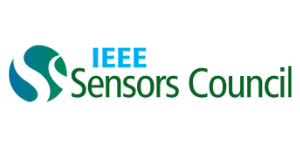3D Flexible Integration (heterogenous integration)
Towards 3D printed, embedded sensors
Traditionally, to sense particular quantities, sensors are mounted on structures and both are optimised independently. Such optimised sensors generally perform very well.
Printed Intelligence for Healthcare
Next generation healthcare devices will require embedded electronics to be reshaped and restructured. Moreover, there is also growing need for transient electronics that is bioresorbable and biodegradable. To this end, there is need for flexible, bendable and breathable electronics that is also biocompatible.
Sustainable ICT (Circular economy, e-waste reduction)
Paper as a substrate and smart material for electronics, packaging, and robotics
As a material, cellulose/paper has attracted significant attention for its fibrous, renewable, and bendable properties. Paper is a renewable resource with the most common forms coming from trees. Consisting primarily of polymeric cellulose, paper is a multi-scale material with millimeter-scale structures built on interlocking micro and nano fibers.
Fabrication and Characterization of Nanomaterial-based Sensor Devices by Metal Organic derived Solution Printing Method
Near future, we will get super smart society (Society 5.0) which a lot of data are gotten form our physical society by IoT technologies with all sensing systems. The big-data in cyber space are optimized and added additional values through AI and ICT technologies, and feedback actionable information to us in the physical space.
Brain-Computer Interface (brain implantables, EEG, etc.)
Approaches to soft BCIs
Electrocorticography (ECoG) is a well-known technique that allows, in the clinic, for the recording of brain signals with high signal-to-noise ratio to conduct functional mapping during resection surgery but also dynamic monitoring about task-related activity such as motor execution, auditory or visual processing.
Magnetic materials for miniature neural interfaces
Electrical stimulation of neural circuits is a key tool for studying brain function and developing new therapies for neurological disorders. Traditionally, these electrical stimulators include an implanted pattern generator that includes a battery and a tether connecting the device to the stimulating leads.
Flexible/printed devices to fight pandemics
Hybrid Printed Electronics to Fight Pandemics
The repercussions of COVID-19 pandemic are still being felt around the world. Frontline medical personnel have borne the brunt of this pandemic, putting their lives on the line while saving others. In scenarios such as this, it is important to ensure their wellbeing, by monitoring their physiological parameters regularly, even continuously.
Inkjet-/3D-/4D-Printed “Zero-Power” Flexible Wearable Wireless Modules for Smart Biomonitoring and Pathogen Sensing
In this talk, inkjet-/3D-printed antennas, interconnects, “smart” encapsulation and packages, RF electronics, microfluidics and sensors fabricated on glass, PET, paper and other flexible substrates are introduced as a system-level solution for ultra-low-cost mass production of Millimeter-Wave Modules for Smart Bimonitoring and Pathogen sensing.
APPLICATIONS OF AI TO FLEXIBLE ELECTRONICS
Exploring 1D and 2D Nanomaterials for Health Monitoring Wearable Devices
are witnessing a proliferation of wearable devices in all aspects of our lives, and they are having a tremendous impact on personalized medicine. In this talk, we will report on wearable devices for health monitoring.
Human-Robot Collaboration for Manufacturing/Remanufacturing Process
The scarcity of resources, environmental regulations, and the potential profitability of salvaging operations have motivated manufacturers to consider end-of-use product recovery and remanufacturing.


















